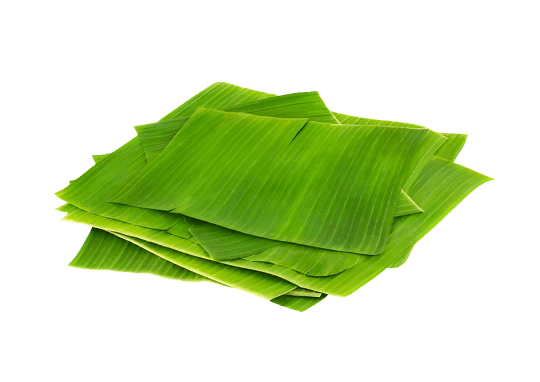How to make Thai Curry Pastes (Red, Green, Yellow, Masaman & Panang)
 Thai Curry Pastes
Thai Curry Pastes
To create your own exquisite Curry Pastes, meticulously follow our impeccable recipes below for a truly satisfying culinary experience
These are the traditional recipes for the five most common Thai curry pastes. Each paste has its own distinct characteristics:
- Red curry is versatile and moderately spicy
- Green curry is the spiciest and most herbaceous
- Yellow curry is mild and aromatic
- Massaman curry is rich and mildly spiced with warm spices
- Panang curry is rich and nutty with a complex flavour profile
If you would prefer to purchase one of our Premium Thai Curry Pastes Click Here
Red Curry Paste (Nam Prik Gaeng Ped)
Makes about 1 cup
Ingredients:
- 15 dried red chilies, soaked and deseeded
- 2 tablespoons chopped galangal
- 4 tablespoons chopped lemongrass (white part only)
- 10 garlic cloves
- 5 shallots
- 1 tablespoon kaffir lime zest
- 2 tablespoons coriander root
- 1 tablespoon white peppercorns
- 1 tablespoon coriander seeds
- 1 teaspoon cumin seeds
- 1 tablespoon Thai shrimp paste (omit for vegetarian version)
Instructions:
1. Toast coriander seeds and cumin seeds in a dry pan until fragrant. Grind in a spice grinder.
2. In a mortar and pestle or food processor, pound/blend the following ingredients in order from hardest to softest:
- Start with lemongrass, galangal, and coriander root
- Add garlic and shallots
- Add toasted spices and white peppercorns
- Add soaked chilies
- Finally, add shrimp paste and kaffir lime zest
3. Continue grinding until a fine paste forms.
Green Curry Paste (Nam Prik Gaeng Keow Wan)
Makes about 1 cup
Ingredients:
- 15 green Thai chilies
- 5 small green bird's eye chilies
- 2 tablespoons chopped galangal
- 4 tablespoons chopped lemongrass
- 8 garlic cloves
- 4 shallots
- 2 tablespoons coriander root
- 1 tablespoon white peppercorns
- 1 tablespoon coriander seeds
- 1 teaspoon cumin seeds
- 1 tablespoon kaffir lime zest
- 1 cup Thai sweet basil leaves
- 1/2 cup coriander leaves
- 1 tablespoon Thai shrimp paste (omit for vegetarian version)
Instructions:
1. Toast coriander seeds and cumin seeds until fragrant. Grind in a spice grinder.
2. In a mortar and pestle or food processor, combine ingredients from hardest to softest:
- Begin with lemongrass, galangal, and coriander root
- Add garlic and shallots
- Add toasted spices and white peppercorns
- Add chilies
- Add herbs (basil and coriander)
- Finally, add shrimp paste and kaffir lime zest
3. Grind until a smooth paste forms.
Yellow Curry Paste (Nam Prik Gaeng Garee)
Makes about 1 cup
Ingredients:
- 10 dried red chilies, soaked and deseeded
- 4 tablespoons chopped lemongrass
- 6 garlic cloves
- 4 shallots
- 2 tablespoons chopped galangal
- 2 tablespoons coriander root
- 2 tablespoons turmeric root (or 1 tablespoon powder)
- 1 tablespoon white peppercorns
- 2 tablespoons coriander seeds
- 2 teaspoons cumin seeds
- 1 teaspoon fennel seeds
- 4 cardamom pods
- 1 cinnamon stick
- 1 tablespoon Thai shrimp paste (omit for vegetarian version)
Instructions:
- Toast all whole spices (coriander, cumin, fennel, cardamom, cinnamon) until fragrant. Grind in a spice grinder.
2. In a mortar and pestle or food processor, combine:
- Start with lemongrass, galangal, and coriander root
- Add garlic and shallots
- Add ground spices and turmeric
- Add soaked chilies
- Finally, add shrimp paste
3. Grind until smooth and well-combined.
Massaman Curry Paste (Nam Prik Gaeng Massaman)
Makes about 1 cup
Ingredients:
- 8 dried red chilies, soaked and deseeded
- 4 tablespoons chopped lemongrass
- 5 garlic cloves
- 4 shallots
- 2 tablespoons chopped galangal
- 2 tablespoons coriander root
- 1 tablespoon white peppercorns
- 2 tablespoons coriander seeds
- 2 teaspoons cumin seeds
- 1/2 teaspoon ground nutmeg
- 4 cloves
- 4 cardamom pods
- 1 cinnamon stick
- 1 tablespoon Thai shrimp paste (omit for vegetarian version)
- 2 tablespoons roasted peanuts
Instructions:
- Toast whole spices (coriander, cumin, cloves, cardamom, cinnamon) until fragrant. Grind in a spice grinder.
2. In a mortar and pestle or food processor, combine:
- Begin with lemongrass, galangal, and coriander root
- Add garlic and shallots
- Add ground spices, nutmeg, and peanuts
- Add soaked chilies
- Finally, add shrimp paste
3. Grind until a smooth paste forms
Panang Curry Paste (Nam Prik Gaeng Panang)
Makes about 1 cup
Ingredients:
- 12 dried red chilies, soaked and deseeded
- 4 tablespoons chopped lemongrass
- 6 garlic cloves
- 4 shallots
- 2 tablespoons chopped galangal
- 2 tablespoons coriander root
- 1 tablespoon white peppercorns
- 2 tablespoons coriander seeds
- 1 tablespoon cumin seeds
- 1/2 teaspoon nutmeg
- 3 tablespoons roasted peanuts
- 1 tablespoon kaffir lime zest
- 1 tablespoon Thai shrimp paste (omit for vegetarian version)
Instructions:
1. Toast coriander and cumin seeds until fragrant. Grind in a spice grinder.
2. In a mortar and pestle or food processor, combine:
- Start with lemongrass, galangal, and coriander root
- Add garlic and shallots
- Add ground spices, nutmeg, and peanuts
- Add soaked chilies
- Finally, add shrimp paste and kaffir lime zest
3. Grind until a smooth, thick paste forms.
Storage Tips for All Curry Pastes:
- Store in an airtight container in the refrigerator for up to 1 month
- Freeze in ice cube trays, then transfer to freezer bags for up to 6 months
- For best results, bring to room temperature before using
- Use about 2-3 tablespoons of paste per can of coconut milk when cooking
Notes:
- For a finer paste, you can first grind ingredients in a food processor, then finish in a pestle and mortar
- Adjust chilli quantities according to your heat preference
- Fresh ingredients will give the best flavour - try to avoid substituting dried versions
- If using a food processor, you may need to add a small amount of neutral oil to help blend

